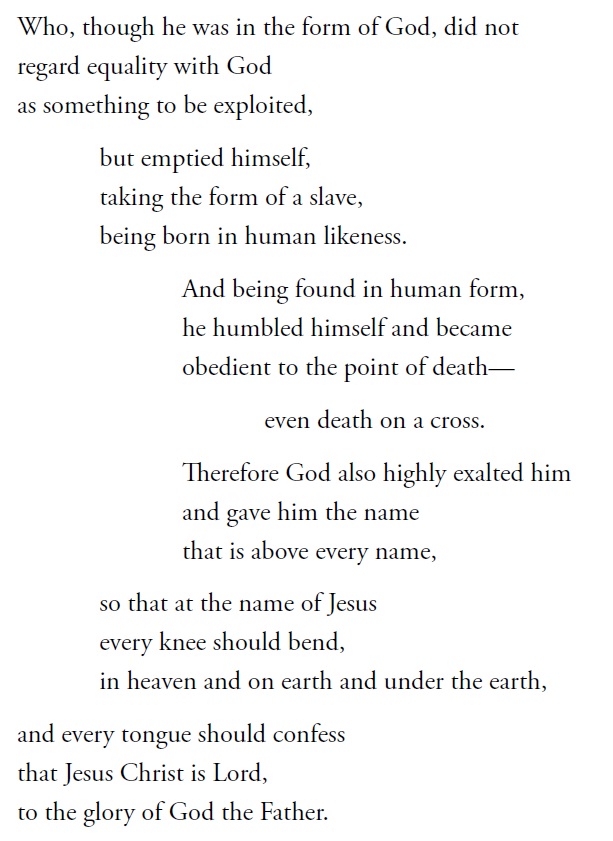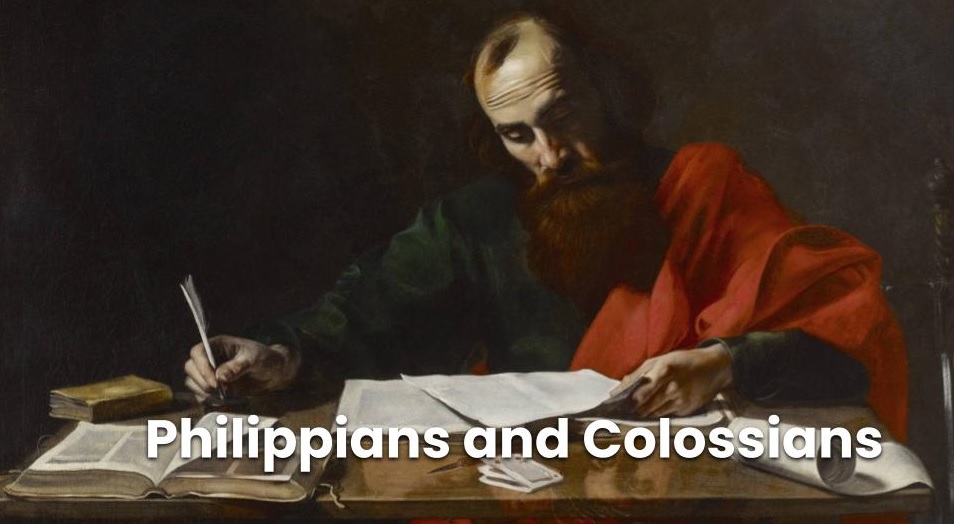Here are some ideas for learning and teaching a few of the great principles in Philippians and Colossians. And while you’re here, I recommend you check out my free online course, “Seeking Jesus.”
Videos for Philippians and Colossians
“Work and Salvation” (Philippians 2, 90 second clip from “Seeking Jesus”).
“What would you give up?” (Philippians 2:6-11, short excerpt from “Seeking Jesus”)
The Bible Project does a great job of helping us understand the big picture of Philippians and Colossians.
Ideas for Learning More About Philippians and Colossians
***Looking Forward***
If you’re teaching younger people, you might start out by sharing this video clip from the Lion King. Alternatively, you could ask a learner to walk forward in a straight line while looking backwards. Either way, the point is that when we focus too much on the past it makes it harder for us to succeed in the future.
This takes us to Paul’s powerful statement, “This one thing I do, forgetting those things which are behind, and reaching forth unto those things which are before” (Philippians 4:13). Great strength can come into our lives when we’re able to let go of the past and press forward in Jesus Christ. If you’re interested in diving deeper into this topic, see Elder Holland’s great message, “Remember Lot’s Wife.” If teaching others you might help learners watch or read sections from it. Here are a couple of excerpts:
“There is something in us, at least in too many of us, that particularly fails to forgive and forget earlier mistakes in life—either mistakes we ourselves have made or the mistakes of others. That is not good. It is not Christian. It stands in terrible opposition to the grandeur and majesty of the Atonement of Christ. To be tied to earlier mistakes—our own or other people’s—is the worst kind of wallowing in the past from which we are called to cease and desist.”
“Faith is for the future. Faith builds on the past but never longs to stay there. Faith trusts that God has great things in store for each of us and that Christ truly is the “high priest of good things to come” (Hebrews 9:11)…Keep your eyes on your dreams, however distant and far away. Live to see the miracles of repentance and forgiveness, of trust and divine love that will transform your life today, tomorrow, and forever.”
***A Different Kind of Reading***
In my graduate work, I took a class from Dr. Eleanor Duckworth. She had many innovative teaching methods, but today I want to suggest one of her simplest approaches. She would sometimes print out a short story or a poem and give each of us a copy. She would then invite us to read it, annotate it, and come up with some questions or comments about the text. We would then go around the room and let each person share what they learned.
While this is a pretty basic approach, I’ve found it to be quite useful when teaching scripture. Printing out the text on a piece of paper can cause students to see the text differently, since its not in a form they’re used to. In addition, when teaching the Bible, I’ll often use a different translation, again so that students can see the text with fresh eyes.
Here’s a handout you can use to facilitate a discussion on Colossians 3:1-16 (or to ponder on your own). I think these are incredibly powerful verses, and look forward to doing the activity I just described with my family on Sunday so that we can dig a little deeper into the meaning of Colossians 3 in our own lives.
***One of the Earliest Christian Messages***
Paul’s Epistle to the Philippians was written in approximately 60 AD. Many scholars believe that a portion of this epistle was an early Christian hymn or poem. If this is correct, then Philippians 2:6-11 is one of the earliest Christian messages. Anglican scholar N. T. Wright notes that “the poem consists of three three-line stanzas, and the line in the middle, as it were, holds its arms out in both directions. . . . The poem is clearly telling the story of Jesus with the cross at its center.” Here is the text in the New Revised Standard Version, reformatted into potential poetic stanzas as identified by Wright:

The Savior had more power than anybody else on earth, but rather than exploit his unique capabilities, he “emptied himself, taking the form of a slave.” Christ disregarded the shame of the cross and instead focused on the joy of helping us (see Heb. 12:2). Christ has left us this legacy of self-giving sacrifice as “an example, that [we] should follow his steps” (1 Pet. 2:21). Following Christ’s example may sound hard, but remember, Jesus is looking for intention, not perfection.
One example of Christlike self-sacrifice was shown by a friend who recently made an extra effort to spend a few hours with her niece who was going through a difficult time. Her efforts to help somebody who wasn’t going to return the favor reminded me of the Savior’s sacrifice for us. Throughout our lives we can follow the Savior’s example of self-abasing love in many simple ways. For example:
• A parent on a tight budget could forgo a personal purchase so that a child can eat out with friends on a school field trip.
• Ministering sisters or brothers could go the extra mile for somebody who isn’t easy to serve.
• People can cheerfully spend time doing an activity their spouse or friend considers important, even if it is not something they would otherwise choose to do.
The ways we can emulate Jesus Christ are endless. The specifics of how we follow Jesus’s example of humble service will vary—but each of us will have the opportunity to prioritize the needs of others above our own.
Paradoxically, as we lower ourselves for others, God lifts us up. It was because of Christ’s humiliating “death on a cross” that God “highly exalted him” (Philip. 2:8–9). Similarly, “lifted up,” a phrase John uses to describe Christ’s Crucifixion, comes from the Greek word hypsoo and means “to exalt.” Ultimately, his Crucifixion was not a shameful death—far from it! Christ repeatedly taught he would be “lifted up” or “exalted” on the cross (see John 3:14–15; 8:28; 12:32–34).
For more on this verse, including a hypothetical scenario you could use to introduce the discussion, see “What would you give up?” (Philippians 2:6-11, short excerpt from “Seeking Jesus”).
***Additional Resources***
Frank F. Judd Jr.’s article, “The Condescension of God according to Paul” has some great insights into Paul’s teachings to the Philippians.
***
I hope these resources are helpful to you in your learning and teaching this week!
Do you want more learning and teaching tips for Come Follow Me? Follow me on Instagram or sign up here for emails with insights on Come Follow Me.






